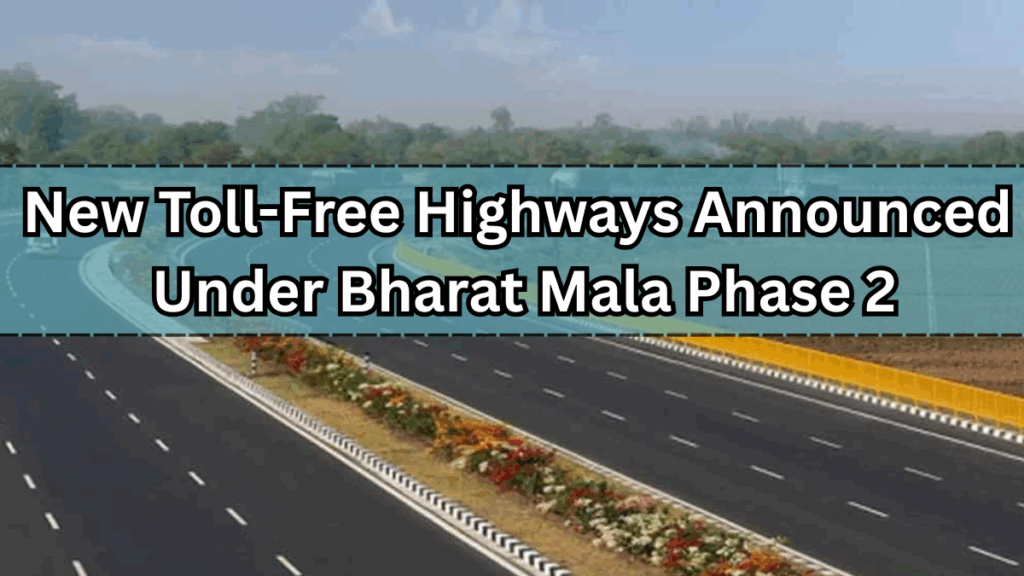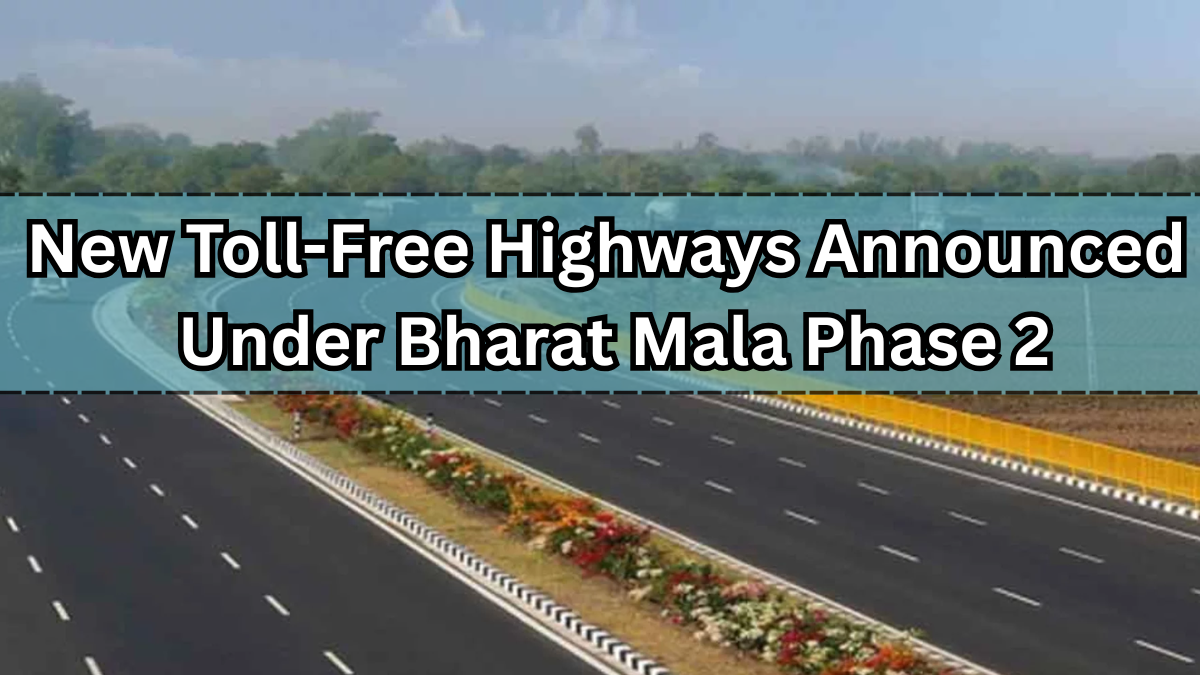The Indian government has recently announced a series of Toll-Free Highways in India under Bharat Mala Yojana Phase 2, aiming to improve connectivity, reduce travel time, and boost economic activity across regions. This initiative reflects the government’s commitment to enhancing infrastructure while offering commuters cost-effective road travel options.

Key Highlights of Bharat Mala Phase 2
-
Expansion of national highway network with focus on remote and strategic regions
-
Development of Toll-Free Highways in India to reduce travel costs for citizens and transporters
-
Integration with ongoing Indian road projects to ensure seamless connectivity between states
-
Emphasis on modernization, including better road quality, smart traffic management, and road safety measures
List of New Toll-Free Highways
| Highway Name | Connecting Cities | Total Length (km) | Status |
|---|---|---|---|
| NH-44 Extension | Varanasi – Ranchi | 320 | Under Construction |
| NH-16 Upgrade | Kolkata – Vishakhapatnam | 280 | Planning Stage |
| NH-27 Expansion | Siliguri – Guwahati | 450 | Approved |
| NH-48 Modernization | Bengaluru – Chennai | 300 | Construction Started |
These highways form a crucial part of Bharat Mala Yojana, connecting industrial corridors, port cities, and remote regions to foster economic growth.
Benefits of Toll-Free Highways
-
Cost Savings: Eliminates toll expenses for daily commuters and freight operators
-
Reduced Travel Time: High-speed corridors with minimal stoppages improve efficiency
-
Boost to Trade: Enhanced connectivity supports smoother transport of goods
-
Regional Development: Better infrastructure encourages investment in smaller towns and rural areas
Integration with Indian Road Projects
Bharat Mala Phase 2 complements other major Indian road projects:
| Project | Focus Area | Key Benefit |
|---|---|---|
| National Expressway Development | High-speed corridors | Reduced long-distance travel time |
| Rural Connectivity Program | Remote villages | Access to markets and essential services |
| Port Connectivity Roads | Coastal regions | Faster goods movement for exports and imports |
Future Road Infrastructure Plans
The government is also exploring smart highways equipped with surveillance, toll-free express lanes for electric vehicles, and eco-friendly corridors. These steps aim to make Toll-Free Highways in India a long-term solution for safer and more sustainable travel.
FAQs
Q1: What is Bharat Mala Yojana Phase 2?
A1: It is the second phase of India’s ambitious highway development program, focusing on national highways, economic corridors, and Toll-Free Highways in India.
Q2: Which highways are included in the new toll-free initiative?
A2: Key highways include NH-44 extension, NH-16 upgrade, NH-27 expansion, and NH-48 modernization, among others.
Q3: How will toll-free highways benefit daily commuters?
A3: Commuters save on toll costs, enjoy faster travel, and have access to better road safety and infrastructure.
Q4: How does Bharat Mala Phase 2 integrate with other Indian road projects?
A4: It complements ongoing projects like expressway development, rural connectivity, and port connectivity roads, ensuring comprehensive national infrastructure growth.
Click here to learn more
